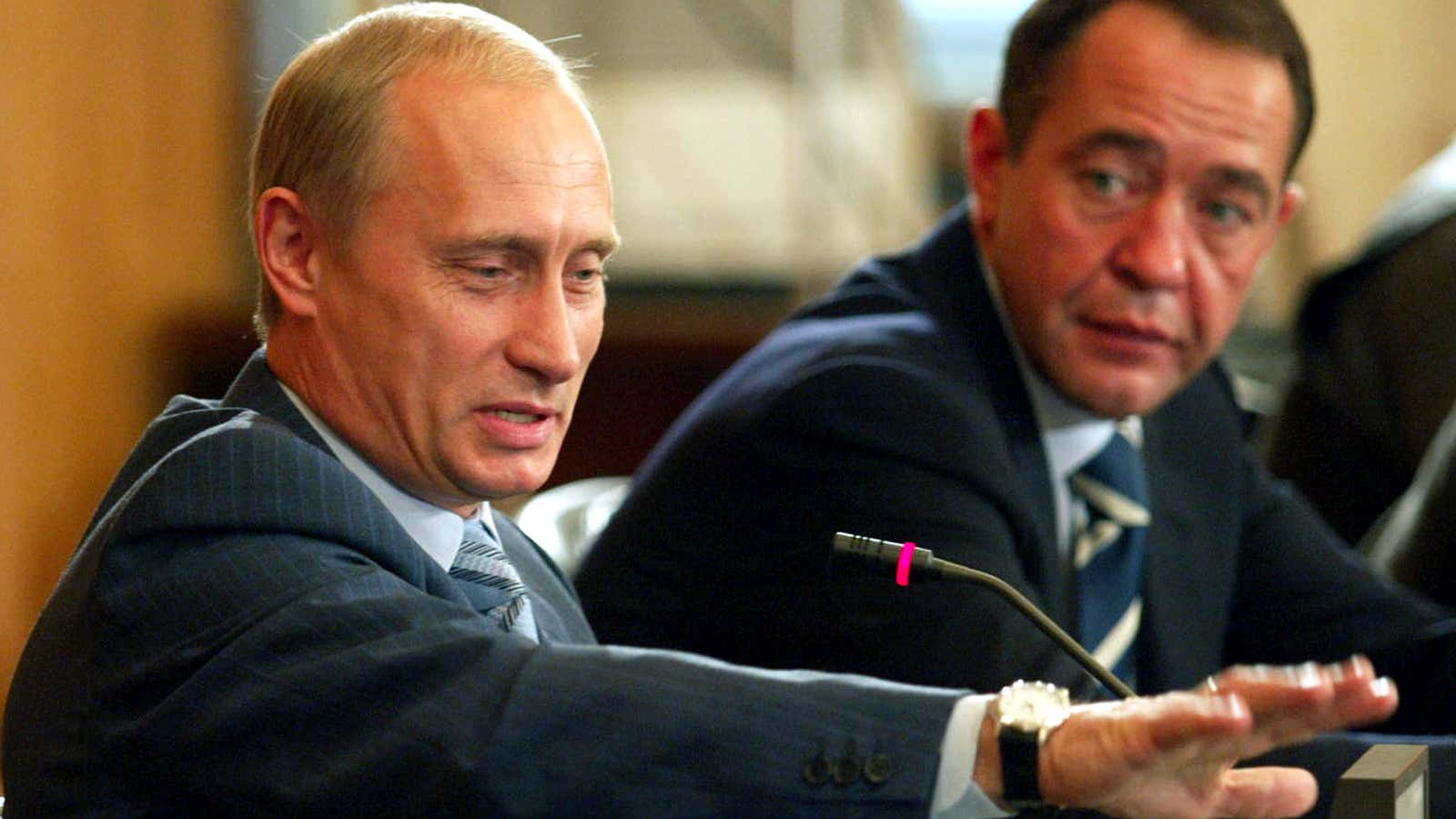New details suggest that a former top aide to Russian president Vladimir Putin was bludgeoned to death in a mysterious case in Washington, DC, that resembles previous assassinations connected to the Kremlin.
Mikhail Lesin, who helped to consolidate state control of the media in the early years of Putin’s regime, was found dead in a Washington, DC, hotel room on November 5, 2015. Authorities at the time said they couldn’t explain why he was there or how he died.
Russian media initially reported that Lesin had died of a heart attack, but US medical examiners suggest in a report released March 10 that he was murdered. Their statement (pdf) cites “blunt force injuries of the head,” in addition to “blunt force injuries of the neck, torso, upper extremities and lower extremities.”
Precise details about how Lesin suffered these injuries remain undetermined, the report said. Washington’s Metropolitan Police Department said it continues to investigate.
A spokesperson for the DC Medical Examiner said that the cause of death was finalized in the last week. The four-month delay in the release of the autopsy may suggest that investigators sought to keep the cause of death from the public as they pursued leads, according to a law enforcement official not authorized to discuss the case. “We’re not willing to close off anything at this point,” an MPD spokesperson told the Washington Post.
Some reports suggest that Lesin may have been in the US to give a deposition to US law enforcement authorities in exchange for leniency for his connections to Putin. Lesin relatives live in the United States.
Other prominent Russians—rich and not-so—have been murdered. Most notoriously, KGB dissident Alexander Litvinenko was fatally poisoned with polonium 210, a nuclear isotope, in a London hotel in 2006. In January, a British inquest concluded that the murder was ordered by the FSB, the successor agency to the KGB, and “probably approved” directly by Putin.
Putin has denied any involvement, but he has conferred an effective cone of state approval over Litvinenko’s alleged killer, Andrei Lugovoy, by allowing him to be elected to the state Duma, and bestowing a medal on him for services to the state.
More recently, Putin opponent Boris Nemtsov was murdered in February 2015 near the Kremlin. The official Russian investigation concluded that the mastermind was the driver of a Chechen military commander.
A muted reaction to the Lesin case contrasts with the recent history of Russian murders. The 2006 murders of Litvinenko and Russian investigative journalist Anna Politkovskaya triggered international outcries.
In 2004, Qatar convicted two Russian military intelligence officers in the killing of Chechen dissident Zelinkhan Yandarbiev, who was murdered along with his son by a bomb. The killers were later released to Moscow after Russia grabbed two Qataris at Moscow’s Sheremetyevo Airport and accused them of associating with Chechen terrorists. All were exchanged as a bargain.
In Lesin’s case, Russia says that US authorities are not keeping them informed. A government spokesperson took to Facebook to say her government has received “no substantive information” from the US.
